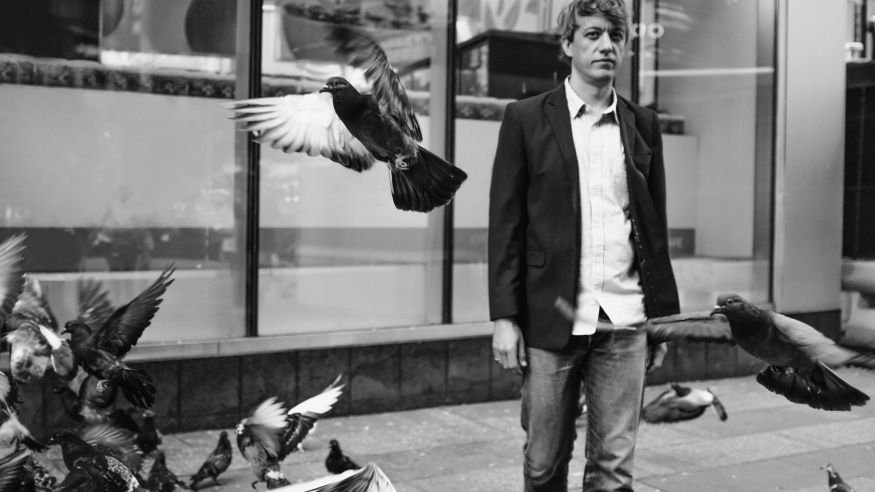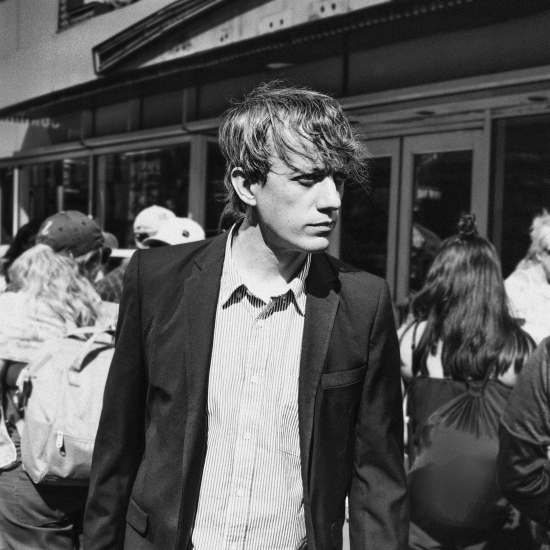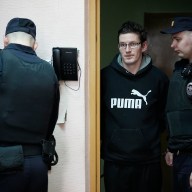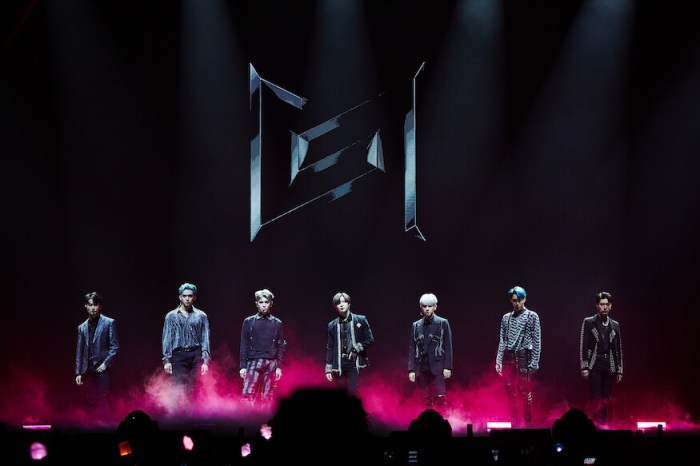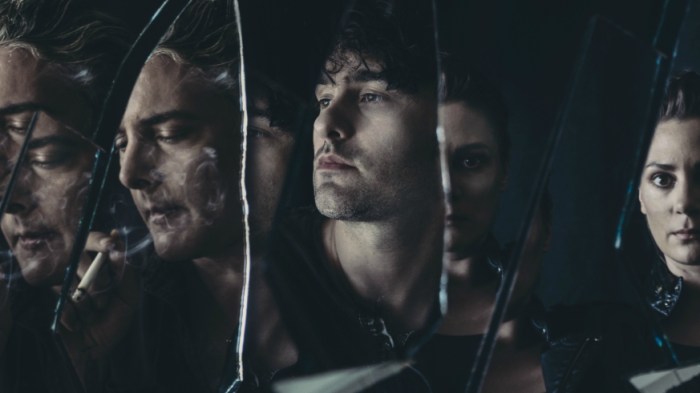You could say that musician Steve Gunn is still keeping the flame burning as one of Americana’s last true outsider journeymen. Over 10 years, Gunn has built up a rich catalog of beautiful folk songs that touch on the delicacies of everyday life with adventurous guitar playing that places him in the company of some of the best working today. Gunn’s excellent new album, The Unseen In Between, comes out on Friday, Jan. 18, on Matador Records and we got the chance to talk to him before he heads out on a lengthy tour to support it.
Steve Gunn on looking back while moving forward
The new record is a big step forward. It is so layered and has these lush orchestrations yet it also has the experimental guitar playing and songcraft you are known for. You had recently done a residency at Brooklyn’s Union Pool debuting some of these new songs. Did a lot of the experimentation come from working things out on stage?
Steve Gunn: Sometimes the shows can get a little more open for experimentation and spontaneity. I think those shows, particularly, were pretty open-ended because people hadn’t heard the record. I just kind of wanted to present the new songs and I was also playing with a few different people. Similarly, on the record, it was kind of loose. We were just open to trying things and there was a really good comfortable flow to the sessions. It allowed us to try different things.
Does the record stop changing when it is recorded or does it take on a new life in a live setting? Are there things you wished you pushed in the studio?
Steve Gunn: I think that stuff takes time. Sometimes after playing certain songs for months and months, I think naturally the music kind of changes a little bit. For me, as a performer, that’s something I really enjoy. Including my band, we’re not just people playing the songs note for note each night. We’re all sort of improvisers in our own right. I think when we get up to play it’s always somewhat open-ended. Obviously, there are songs to play. But, certain things just naturally change. The songs when we recorded them were very new, but at the same time, I left it kind of open-ended even from the beginning with the musicians. We never really rehearsed the songs. I had them all written and all demoed just solo. So they heard them and then everyone showed up to the studio and all just kind of decided what to play.
They’re all session players. It almost felt like a real session from the ’60s or something where a guy would show up with his acoustic and have these songs and have a backing band waiting for him in the studio. That’s kind of how it happened! I certainly prepared by myself a lot. Probably the most I ever have in recording a record because I wanted to not waste time. If I had the band there and then if I start screwing up, the whole thing would have fallen apart. I had a clear idea of what I wanted to do. As I said, those guys were so pro and they made it easy. I didn’t feel stressed. They were super supportive. That was kind of the first time I felt that way [while recording]. I had been performing quite a bit up until then. A lot of it was solo, so I felt confident as a singer. I just felt like I was in the right place for the record.
That’s interesting. You always hear about bands practicing songs to death before recording and losing that feeling of danger. But as a solo performer, if you have everything dialed in and you bring in the right musicians, the possibilities are endless.
Steve Gunn: Yeah, that’s kind of how I felt! Everything was rooted and direct. The guy who was playing bass, Tony Garnier. He has so much experience. He has been in Bob Dylan’s band for 30 years. He was such a helpful guy because he would say “just go ahead and sing your songs. You don’t have to overthink it. Just be yourself because it sounds great.” It’s a pretty nerve-wracking thing to go into the studio thinking, “Am I doing this right? Does this sound good?” It was a super comfortable scenario for me.
Your guitar playing gets a lot of notice in a lot of reviews. As it should. But I’ve always found your lyrics fascinating. They are so vivid in their imagery yet very vague and poetic. They also pull of the great trick of feeling like they are etched into stone and not tied to a specific time period. Is that something you try to be conscious of in the writing process?
Steve Gunn: I think so! Now that I think about it, in retrospect. As a songwriter, I am really influenced by art and poetry and also folk tradition. I like to meld all of those things together and not pin down the imagery to a certain object or present time. It’s just the way I work, I think. I tend to think about a lot of things when I write a song. Usually, I try to think of the thematic ideas and then use the descriptions within that instead of speaking from a singular experience. I certainly address some personal issues on the record. But, lyrically, I like to keep it not super, super specific. I’d like to try that as an exercise someday. Some songs that I’ve written, people are like, “This doesn’t make any sort of sense. What is the story or the context?” and I’m like “I’d rather keep that to myself.” I think with this record, it’s a bit more introspective than my other records.
I really enjoy the mystery!
Steve Gunn: I think it’s important! Particularly in music these days, a lot of that is lost. A lot of that mystery and the sense of picking your own interpretations of songs. It’s a very egocentric endeavor and I think even just as far as how music is used and how quickly people’s attention spans are there are certain traits of being an artist in general that are being pushed away. In my opinion, maybe I’m just a little too old fashioned. I’m not a millennial. I’m thinking about the way how music used to be a little bit more tangible. That’s my school and that’s where I’m coming from in this day and age.
In interviews, you talk a lot about gaining inspiration from free jazz musicians like Sun Ra. I was so surprised to see that you recently released a cover of the Misfits “Astro Zombies”. It’s fantastic! Was Punk a gateway for you to get into more rebellious music early on?
Steve Gunn: It did. Thinking about it in retrospect, when you’re trying to explain or even just think about the signposts in your life, for me as a musician I think about when I was young, my parents and the area where I grew up — these are things that I never really considered until people started asking me ‘what is your musical history and how did you become the musician that you are?’
When I was really young, my parents were really into music. I also had an older sister which I think was very key for me when it came to discovering music. She was an outlet for me and I would just borrow stuff from her constantly. I almost vicariously started experiencing music through her. She would go to these concerts and I would ask about them. When I was old enough, I started emulating her and her friends and going to concerts at like 13 years old. I would just try and pretend to be cool. That was also when I first started playing an instrument. I was into skateboarding and young teen stuff. Punk rock was such a formulaic and accessible kind of music. There was a way to inform myself and to meet people. Over the span of a few years, I discovered that there was a sense of community through it and there was a sense of exploration in getting out of a small town. This is pre-internet. But, ordering records from people all over the country and just reading fanzines. It was all the D.I.Y. culture impulse swing back then and I just immersed myself in it musically. Particularly the Misfits. It wasn’t as serious as some of the other stuff. There was a lot of tongue in cheek lyrics. They were from New Jersey. They were super melodic and anthemic. That was something that I listened to incessantly. I was also obviously listening to a lot of other stuff. But, particularly that band and punk rock really first informed me early on as a player.
Then, I kind of had an exploratory sensibility about music. The more I played the more I wanted to know about other kinds of music. It wasn’t until after I was graduating from high school that I started learning about jazz and blues music. Shortly after that, I was discovering all of these musicians who were incorporating all of these different styles like Indian classical, jazz, and all kinds of stuff. When I moved out of my parents’ house, at a pretty young age, I just kind of met all of these people who were older and started going to record stores. That’s when everything opened up. I was befriending people who were, for the lack of a better word, just deep music appreciators. There wasn’t any kind of parameters or rules. There were people who would have blues records, free jazz, listened to Fela. Just everything, essentially! That’s when everything started informing me as a musician and as a music nerd, I guess.
You just produced your second album with legendary folk musician, Michael Chapman. Do you find as much inspiration producing other people’s records as your own?
Steve Gunn: It’s a whole new sort of thing for me. I think it was really satisfying to not be under the pressure of making a record but know what it takes. I had just finished this new one when I went over to England to help Michael. I know Michael really well and he understands that and he trusts me. Which I think is really cool for him to let me step in and take over the session and allow him to just be himself. Michael is such a strong performer, particularly solo, and I just wanted to facilitate his strengths in the studio. He’s a one and done guy where it’s just like “Okay, let’s make this record. That one’s done. Next.” I was more like “Let’s get back to that one!” I was just facilitating the days and the time and making sure that he got things right because there isn’t really much of a filter for him. That’s just the way he works. The other musicians were really amazing. It wasn’t a difficult session, but it was a more intimate kind of thing. I think Michael needed another pair of ears that wasn’t tracking to help him. I was really grateful that he asked me to help him do it. As I said, I sort of know him very well and for me to give him any kind of guiding ideas was a huge accomplishment for me because I look up to him so much. It was rewarding in a different way in that it wasn’t my album. But, it was my responsibility to make sure it didn’t go off the rails
That brings to mind this quote Elvis Costello had about producing the Pogues. I’m going to paraphrase here, but he said something like “I wanted to produce them so somebody else didn’t screw them up.”
Steve Gunn: Yeah! I feel possessive of Michael. When we worked on that album Fifty together it was the first step in this kind of relationship where he trusts me He knows I’m not steering him in any other weird directions. I’m just trying to help the session go as smoothly as possible and get the right takes… I think Michael could’ve got in the wrong hands and I would have felt guilty if he made some album that was really slick sounding of what was just not who he really is. It’s not a perfect album, but I wanted to be the one who made it sound like it does (laughs).
You are bringing out influential Japanese psych-folk musician, Sachiko Kanenobu to open a couple of your shows on this tour. Do you think the folk-tradition of paying your respects to influential but maybe not so well-known artists is an important thing to carry forward in music?
Steve Gunn: I do, yeah. I do think that’s still important. These people are still around and they’re willing to play. Their music is really influential and it’s almost as if they have become these mythic people. But actually, a lot of them are still engaged in the world. They’re around and they’d be thrilled to talk about their music. Not all of them, of course. When I got in touch with Sachiko Kanenobu she was so open and friendly about the whole thing and I think there are a lot of people that really love that album and weren’t aware that she was still around. The album is getting reissued, so more people will hear it. For me, I think that tradition is super important. That kind of sensibility, in a lot of respects, is important in the current state of music and in the music business. With streaming and social media, there’s this sort of instantaneous gratifying thing that people just take and take and they’re not listening to whole albums and aren’t digging deeper to see what else happened in the past. That’s just me. I’ve been interested in that from the beginning. To be friends with people like Michael Chapman and Sachiko Kanenobu and hearing their stories about hanging out with some of my heroes, I think it’s important to experience that and be in touch with that. I think it’s a reciprocating relationship and friendship too. These people really appreciate that their music is still relevant. I hope someday that that happens to me!
You can get tickets to see Steve Gunn on tour here.

